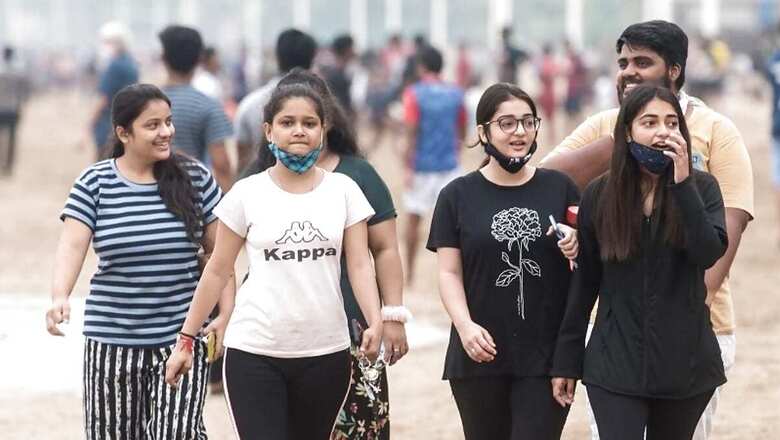
views
In a major change for the higher education system, the University Grants Commission (UGC) has decided to allow colleges and universities to have two academic sessions in a year instead of one, which means institutions would be able to admit students biannually, the commission’s chairperson M Jagadesh Kumar said on Tuesday.
Currently, UGC regulations allow colleges and universities to admit students in one academic session in a year starting in July/August and ending in May/June for those in the regular (physical) mode.
The policy decision was taken by the UGC in its meeting on May 15, 2024.
In July 2023, the commission allowed higher education institutions to take biannual admissions for those enrolled in online courses as well as under the Open and Distance Learning (ODL) modes.
The step, according to Kumar, was prompted by the positive response to last year’s decision to allow biannual admissions for online and ODL modes.
After UGC permitted two cycle admissions in a year for ODL and online modes, in addition to a total of 19,73,056 students who were enrolled in July 2023, an additional 4,28,854 students joined in January 2024 in ODL and online programmes, he said.
“These numbers show that permitting a second academic session in a year has helped nearly half a million students join their degree programmes without waiting for one full academic year,” he added.
The UGC chairperson said that considering the tremendous response and interest from students in ODL and online programmes in biannual admissions, the commission took a policy decision to allow Higher Education Institutions (HEIs) that offer programmes in regular mode to admit students twice a year, either in January/February or July/August from the coming academic year.
“With this decision by UGC, HEIs offering programmes either in online/ODL mode or regular physical mode will be able to admit students twice a year,” said Kumar.
However, he cleared that offering biannual admissions is not mandatory for the institutions; the flexibility is provided for those colleges and universities who want to increase their student intake and offer new programmes in emerging areas. To be able to admit students twice a year, HEIs must make suitable amendments to their institutional regulations.
“If Indian universities can offer admission twice a year, it will benefit many students. Such as those who missed admission to a university in the July/August session due to a delay in the announcement of board results, health issues, or personal reasons. Biannual university admissions will help students maintain motivation since they do not have to wait one full year to be admitted if they miss admission in the current cycle,” the UGC chairperson said.
With biannual admissions in place, he said, industries can also do their campus recruitment twice a year, improving employment opportunities for the graduates.
Asked when universities can implement the new policy, Kumar said, “They can start when they are ready.”
According to Kumar, biannual admissions will also enable the institutions to plan their resource distribution, such as faculty, labs, classrooms and support services, more efficiently, resulting in a better functional flow within the university.
Universities worldwide, he said, already follow a biannual admission system. If Indian universities adopt the biannual admission cycle, they can enhance their international collaborations and student exchanges.
Biannual admissions can substantially increase the Gross Enrolment Ratio and make India a Global Study Destination as envisioned in the National Education Policy (NEP) 2020, he added.
If universities and colleges adopt biannual admissions, they need to work on administrative intricacies, planning for increased use of available resources, and providing seamless support systems for the smooth transition of students admitted at dissimilar times of the year.
Stay ahead with all the exam results updates on News18 Website.




















Comments
0 comment